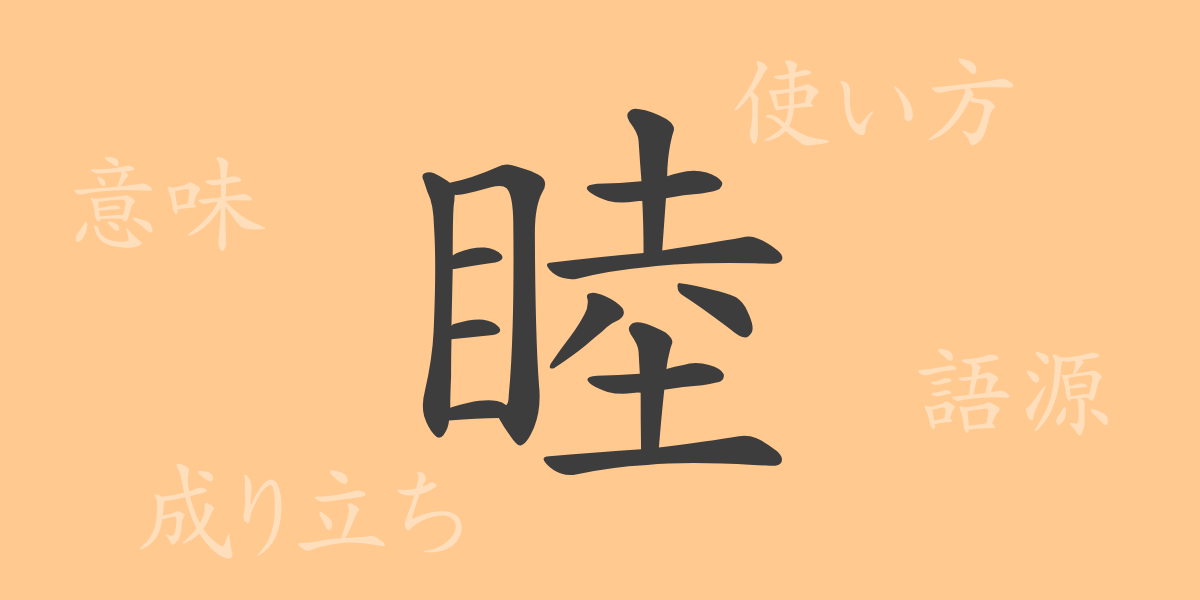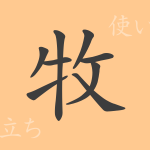In the Japanese language, there are numerous kanji characters, and among them, “睦” (mutsu) is one that is frequently seen in daily life. This article delves into the hidden meanings, origins, and uses of the character “睦” (mutsu). For those interested in Japanese culture and language, or anyone looking to deepen their knowledge of kanji, we hope this serves as a small gateway into the fascinating world of this character.
Origin of 睦 (mutsu)
The kanji “睦” (mutsu) has its roots in ancient Chinese oracle bone script, where it symbolized affection and friendliness. This character is composed of “目” (me), meaning “eye,” and “互” (go), meaning “mutual.” The imagery of eyes meeting represents people holding affection for each other and building harmonious relationships.
Meaning and Usage of 睦 (mutsu)
The character “睦” (mutsu) is used in words like “和睦” (waboku) and “親睦” (shinboku), which denote harmonious relationships, close bonds, and peaceful states. It frequently appears when emphasizing harmony and bonds within families or communities, reflecting the importance of interpersonal connections and social harmony in Japanese culture.
Reading, Stroke Count, and Radical of 睦 (mutsu)
The kanji “睦” (mutsu) is not particularly complex in Japanese and is generally read as “mutsu.” However, in specific contexts like names, it can also be read as “mutsumi.”
- Reading: On’yomi (音読み): Mutsu, Kun’yomi (訓読み): mutsu, mutsumi
- Stroke Count: 13 strokes
- Radical: 目 (mehen)
Words, Idioms, and Proverbs Using 睦 (mutsu)
Here are some words and idioms that include the character “睦” (mutsu):
- 和睦 (waboku): When hostile countries or people stop fighting and become friendly.
- 親睦 (shinboku): To be friendly. Also, the state of being close and friendly.
- 睦言 (mutsugoto): Affectionate words exchanged between a married couple or lovers.
- 睦み合う (mutsumiau): To be friendly and close with each other.
These words and idioms highlight the importance of building good human relationships, reflecting Japanese culture and values.
Summary of 睦 (mutsu)
The kanji “睦” (mutsu) signifies affection, harmony, and plays an important role in Japanese culture, which values interpersonal connections and social harmony. Understanding this kanji allows us to rediscover traditional Japanese values and the depth of human relationships. For Japanese language learners, grasping the background of such kanji offers a richer learning experience, connecting not just with the language but also with the culture.

























